One of the most common questions that bearded dragon owners have is why their beardie is panting. While it can be a bit alarming, it’s completely normal for beardies to pant on occasion.
In many cases, when a bearded dragon starts panting, it’s because they’re hot. If your bearded dragon is in an area where the temperature is high, or if they’ve been playing around and are now hot and tired, then it’s normal for them to start panting.
As you continue reading this article, you will have various ways and have enlightenments why they’re panting, what causes it and how to resolve it.
Contents
Why Is Your Bearded Dragon Panting?
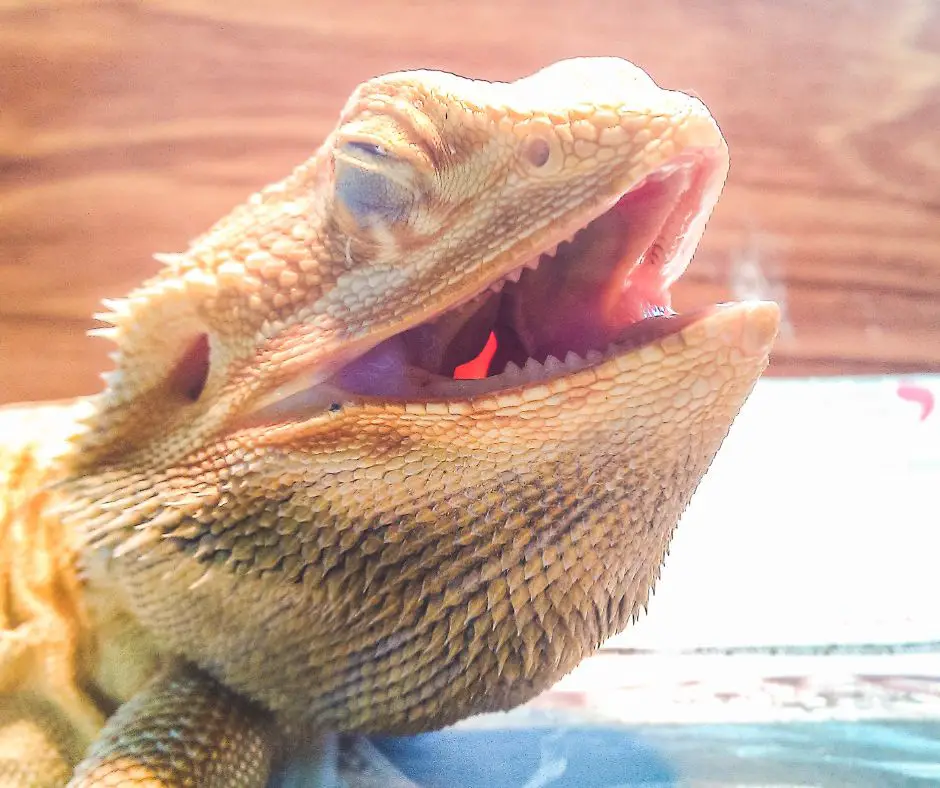
A Bearded dragon has a three-chambered heart. They use intercostal muscles to breathe.
They do not have a diaphragm that separates their chest from their abdomen. They mostly gape or open their mouth widely while breathing because of some reason.
It is normal for your bearded dragon to pant when they’re sleeping, bathing, or having a digestive process. If your beardies pant more than usual, though, they’re hot, stressed, or when they’re trying to regulate their body temperature. It also could be a sign of respiratory illness, and you should take your bearded dragon to the vet if you notice this behavior.
The sections below explain in detail the causes and what should you do in each cause.
Panting In Sleep
Bearded dragons have similar sleeping patterns like humans which both have slow eye movement and rapid eye movement.
Unlike humans that have 60-90 minutes sleeping cycles, bearded dragons only have 80 seconds of it but evenly breaks to both SWS and REM.
The metabolic and respiratory rates of bearded dragons, especially during heavy sleep, is crucially slow.
If respiratory rates while sleeping gradually drop, it’s hard to tell if they’re breathing or not, that’s why you see them gasping for air or panting.
Bearded dragons sleep anywhere they feel comfortable with, there’s no need to worry. So, do not disturb their slumber. Do not overfeed and increase tank temperature as it causes metabolic and respiratory problems.
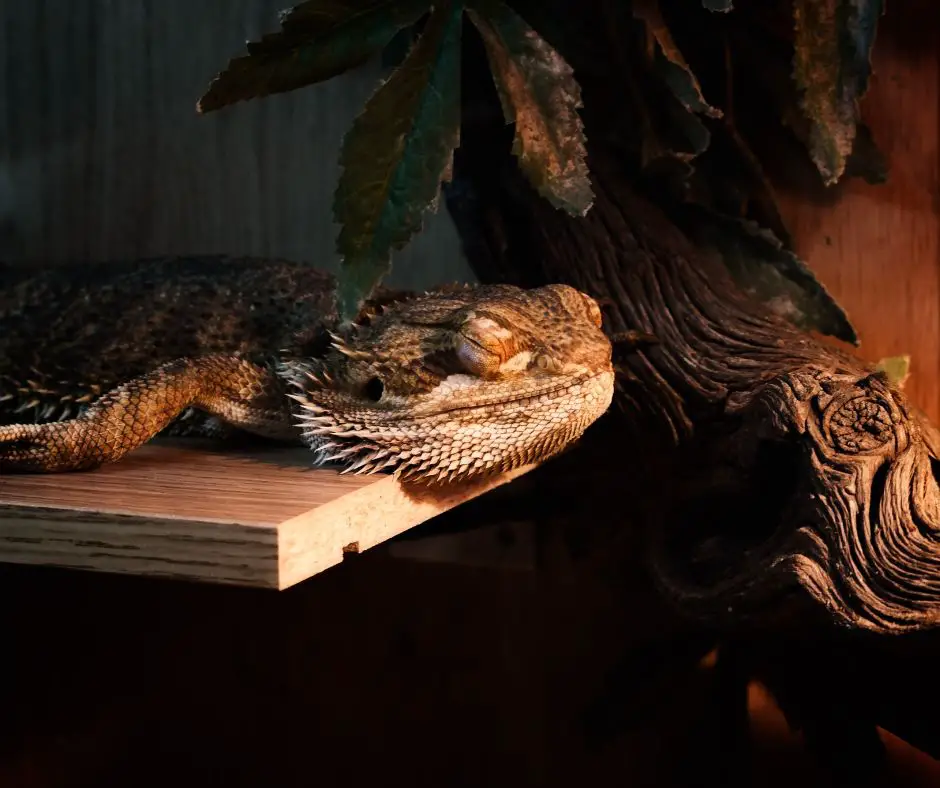
Panting In the Bath
Two things to consider when your bearded dragon pants during bath, reaction to water pressure or pleasure of being bathed.
If your bearded dragon doesn’t get its head in the water, then you don’t need to worry at all! But if it gradually pants while bathing, then it might have drank too much water.
Bearded dragons breathe heavily when they have inhaled too much water. Accidentally taking in liquid to its nostrils might lead to respiratory infection. Panting in the bath also means they haven’t thrown up the water being inhaled.
If your bearded dragon’s breathing heavily while being bathed involves hissing or blackening, then you should stop. It doesn’t want to take a bath when the aforementioned reactions take place.
If in any case it drank too much water, let it sleep at a declining position to draw water out from its lungs.
Having a Digestive Process
If your bearded dragon is panting after eating, don’t worry – it’s normal. Humans digest their food with acids and bacteria, while beardies rely on heat to break down food.
After eating, bearded dragons usually go to bask in order to regulate their body temperature. During this time, you may notice that their breathing changes and becomes heavier.
However, this is nothing to worry about – it simply means that your bearded dragon is digesting its food. All you need to do is give your pet some time to process the meal.
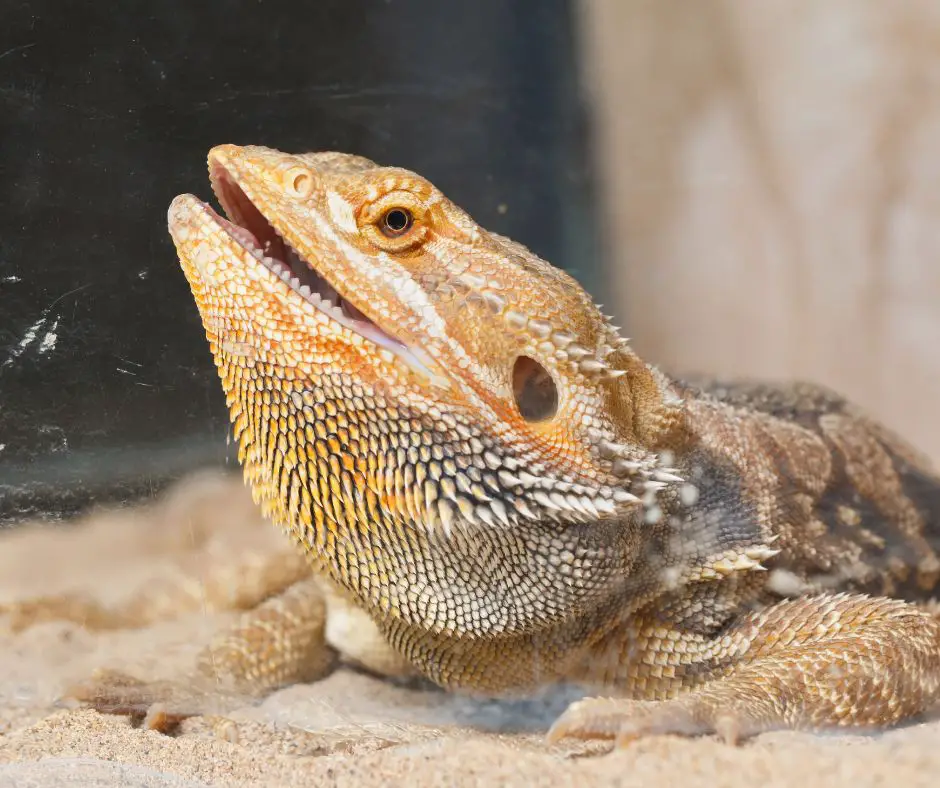
In some cases if the food is too large, Bearded dragons will also breathe. If you’re concerned about this issue continuing for a long period of time, make sure that you’re preparing the food correctly.
This includes chopping the food into small pieces so that it’s easier to digest, usually less than the distance between beardies eyes.
Temperatures In the Tank is Too Hot
Reptiles are cold-blooded (ectotherms), meaning they rely on their environment to regulate their body temperature. Your beardies are no exception, they depend entirely on the tank temperature.
Between 75-85 degrees Fahrenheit (24-29 degrees Celsius) are safe temperatures for bearded dragons during the day and around 70-75°F (21-24°C) at night.
Your dragon also requires 90-115 degrees Fahrenheit (32-46 degrees Celsius) in the basking area.
If the temperature in the tank exceeds their ideal range, beardies will heat stress. They cool down by rapidly inhaling and exhaling to lower temperatures.
When bearded dragons are overheated, you’ll notice they have several signs including severe panting, rapid breathing, trying to escape the tank, refusing food, digging, hiding under a rock or hide and sitting in a corner.
If your bearded dragon is panting and appears to be in distress, try to cool him down by moving him to a cooler area or take it out immediately to allow it to cool down. Then, you need to review the heating in the tank.
You can mist or add moist hides, having a water bowl large and safe enough to decrease the temperature in the tank.
Just make sure the tank has a spot to cool down and that the temperatures are not too high. The baking area should be hotter than the rest because it is necessary for proper digestion.
To monitor the temperature of the tank, you can use thermometers Infrared Thermometer 774 or Digital Infrared placed at both the cool and hot ends of the enclosure. If his symptoms persist, take him to see a veterinarian.
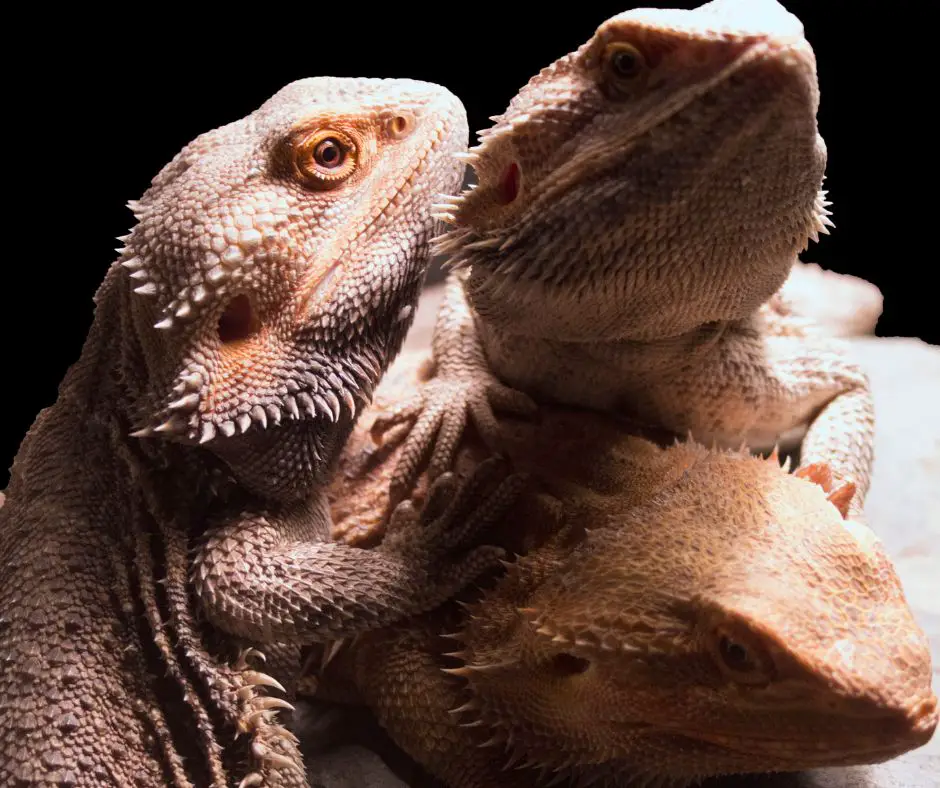
Zilla Reptile Health Supplies Tropical Mist Humidifying Spray, 8-Ounce
- Provides moisture that is essential for reptile's skin and respiratory system and helps to prevent dry skin or shedding problems
- Fortified with rich emollients, vitamins and aloe vera that enhance coloration and restore reptile skin
- Increases essential moisture and humidity levels for tropical reptiles
- Spray directly from bottle daily or weekly depending on the species' humidity requirements
- Ideal for all tropical and semi-tropical species of reptiles and amphibians
Last update on 2022-12-29 / Affiliate links / Images from Amazon Product Advertising API
Being Stressed
Bearded dragons can become anxious or stressed for a variety of reasons. If there are changes in their environment, such as a new pet in the house, they may start panting as a way to cope with the stress.
Bearded can be stressed for a number of reasons:
- incorrect tank temperature
- wrong sized tank
- relocation stress
- excessive handling
- loud noises
- housing two dragons together
- Boredom
Bearded dragons can exhibit many different signs of stress. Some common signs of stress in bearded dragons include:
- Hiding
- Pacing or head-bobbing
- refusal to eat
- being aggressive
- having a dull or empty looking eyes
- excessive salivation
- regurgitating their food
- becoming lethargic
If your bearded dragon is panting and seems stressed, try to identify the source of the stress and remove it if possible.
You can also try to provide a more enriching environment for your bearded dragon, such as adding hiding places and new toys. If the panting persists, he needs veterinary care.
Also Read: Bearded Dragon Stress Marks
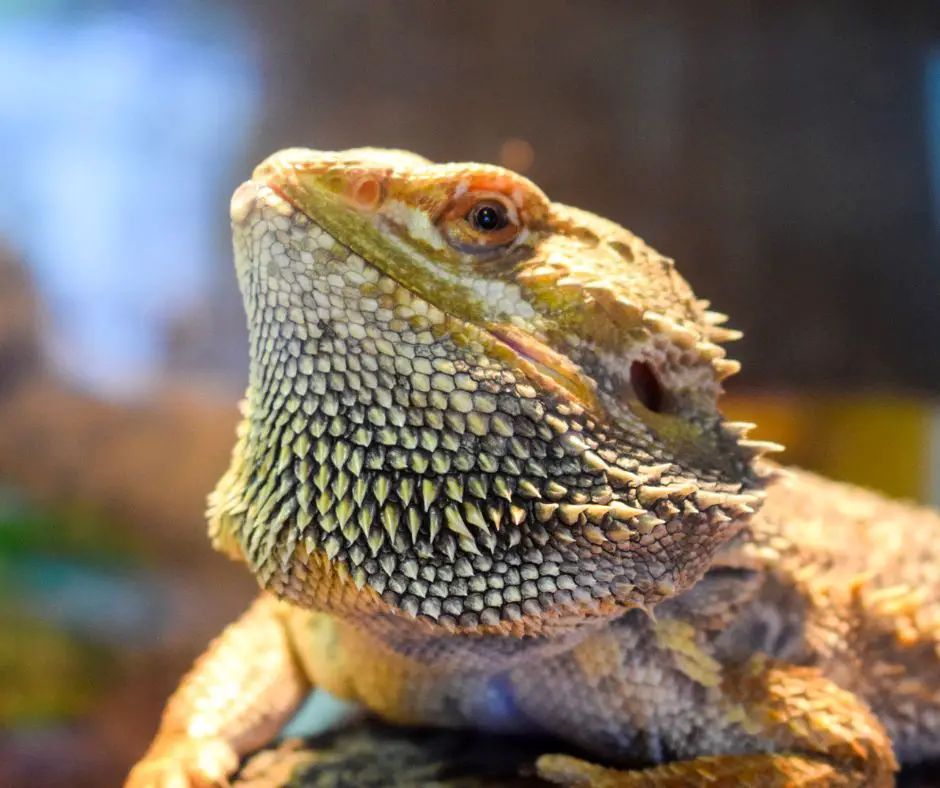
Your Bearded Dragon Is Shedding
Bearded dragons often pant when they are shedding. This is because the process of shedding can be stressful and cause them to overheat.
Signs of pre-shedding are lethargy, not wanting to be handled, eyes bulging out (often the first area to molt), raised patches of skin, and skittish behavior.
If your bearded dragon is panting and has other signs of shedding such as dulling of the colors, loss of appetite, and changes in behavior, he is likely shedding and you should not try to cool him down.
Allow him to shed naturally and provide a humid environment for him to help ease the process.
You can learn more about How to Help Your Beardies To Shed The Right Way
Your Bearded Dragon May Have Mouth Infection
Unlike other reptiles, infectious stomatitis (mouth rot) is not common in bearded dragons.
If your dragon has an infection in the mouth, they may start panting as a way of getting air because there is a lot of mucus in the nose and mouth.
Infections in the mouth can be caused by a variety of things, including stress, poor husbandry, being improperly fed, or malnutrition. Also, Beardies will likely be very uncomfortable and may not be able to eat or drink properly.
There are a few signs that you can look for if your bearded dragon is exhibiting mouth problems. One common sign is drooling.
Other signs are bubbles from the mouth or nose, open-mouthed breathing, unnaturally rapid or shallow breathing, swelling around the jaw or face, loss of appetite and weight loss.
If your bearded dragon has a mouth infection, you will need to take them to the vet for treatment. The vet will likely prescribe antibiotics as well as rinsing the mouth to clear up the infection
Making sure your pet’s diet is quality and healthy is the best way to prevent mouth rot. You also need to pay attention to cleaning the tank weekly. Don’t forget daily checks for dirty spots and remove uneaten food.
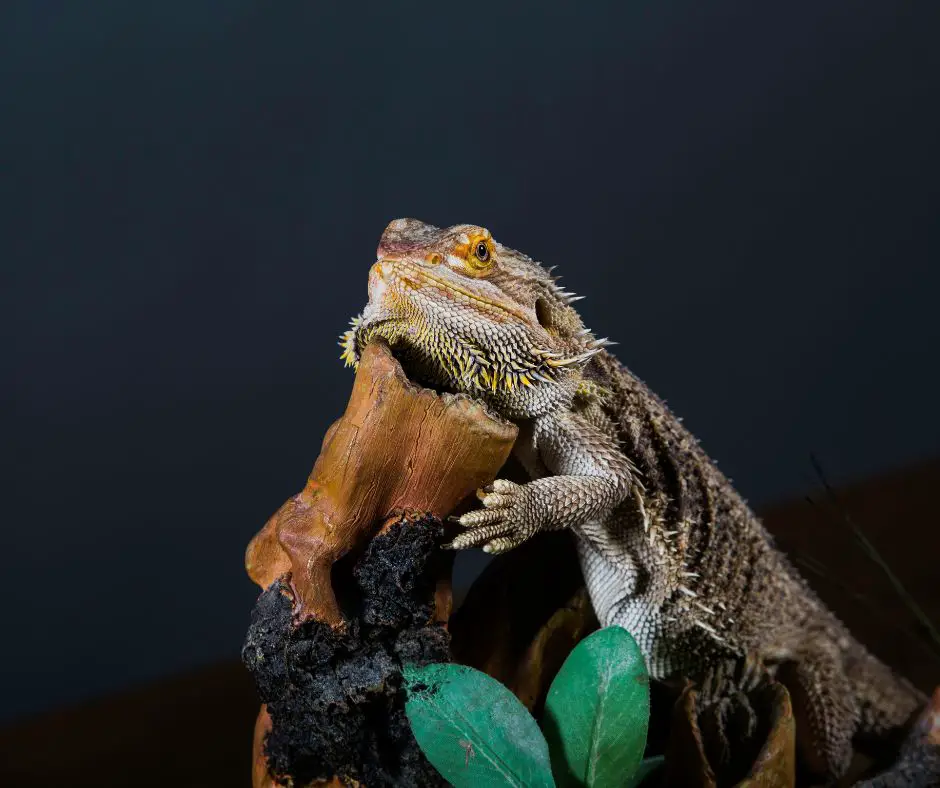
Respiratory Infection
There are several signs that may indicate that your bearded dragon has a respiratory infection. One of the most common symptoms is wheezing or difficulty breathing. Other symptoms may include:
- coughing
- Sneezing, snorting, sniffling
- nasal discharge
- black bearding
- noises coming from their throat.
- lethargy
Bearded dragons can develop a respiratory infection for a number of different reasons. The most common are due to dangerous temperatures & humidity levels, proper bearded dragon cage temperatures, using the wrong substrate or poor bathing practices.
You can raise vivarium temperatures slightly and use a dehumidifier to prevent bad transitions.
However, it is important to seek veterinary care as soon as possible because respiratory infections can be serious and can often lead to pneumonia. With the right treatment, most respiratory infections can be successfully treated.
Last Sentences
Whenever you notice a bearded dragon panting, do not impulsively jump into conclusions of health problems. Consider first their behavior depending on the situation or condition they are in. Panting can be a cause of normal or abnormal issues.
Normal causes circulate within bathing, sleeping, and digesting. Abnormal causes talk about respiratory and mouth infection, stress, extreme temperatures, and shedding. Regardless of the cause, their well-being is still your primary concern.
If your pet, particularly a bearded dragon, is suffering from something odd, make sure to consult it with a vet. You can never go wrong by asking the real experts.

